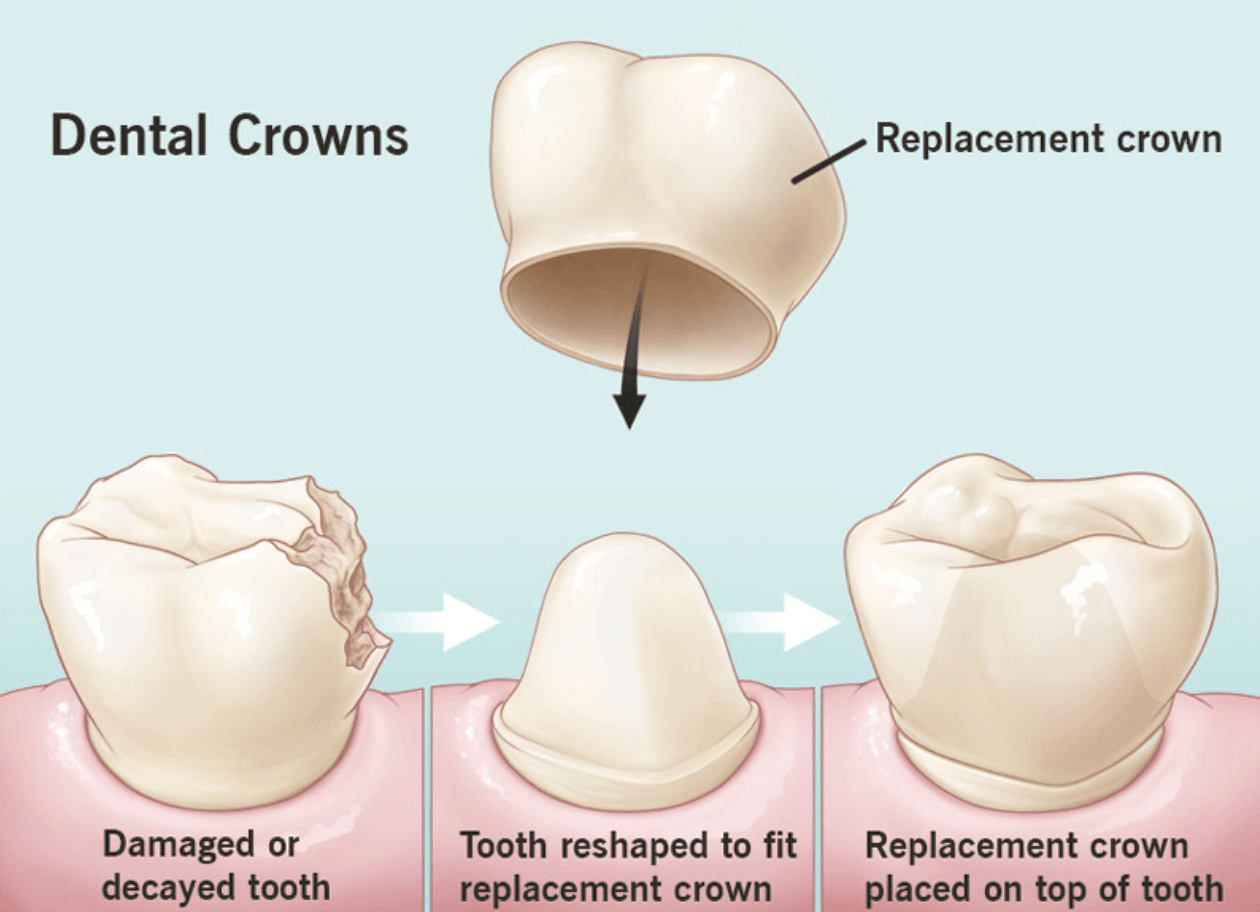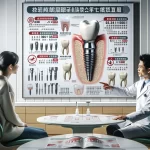Are you tired of hiding your smile due to damaged or unsightly teeth? Dental crowns might be the solution you’ve been searching for. These tooth-shaped caps can transform your dental health and boost your confidence. In fact, over 15 million Americans have crown and bridge replacements for missing teeth. But what exactly is a dental crown, and how can it help you?
In this guide, we’ll uncover the secrets of dental crowns, from their purpose to the various types available. You’ll discover the step-by-step process of getting a crown and learn essential care tips to keep your new smile shining bright. Whether you’re dealing with decay, injury, or simply want to enhance your appearance, we’ve got you covered.
Ready to take the first step towards a healthier, more radiant smile? Let’s explore the world of dental crowns together!
The Purpose of a Dental Crown
Dental crowns serve multiple important functions, making them a versatile option in restorative dentistry. Here are some key purposes:
- Protecting Weak Teeth: Crowns shield teeth that are weakened by decay or fractures from further damage.
- Restoring Broken Teeth: They can effectively restore teeth that are broken or significantly worn down.
- Supporting Large Fillings: When little tooth structure remains, crowns provide necessary support and coverage.
- Anchoring Dental Bridges: Crowns can hold dental bridges in place, replacing missing teeth securely.
- Enhancing Aesthetics: For cosmetic reasons, crowns can cover misshapen or discolored teeth, improving overall appearance.
- Covering Dental Implants: Crowns are essential for covering dental implants, providing a natural look and function.
- Cosmetic Modifications: They can also be used for aesthetic enhancements to improve the smile’s appearance.
Types of Dental Crowns
Understanding the different types of dental crowns is crucial for making an informed decision. Here’s a breakdown of the options available:
- Stainless Steel Crowns
- Prefabricated and primarily used as temporary solutions.
- Often applied to children’s primary teeth until a permanent crown is ready.
- Metal Crowns
- Made from durable alloys containing gold, platinum, or base metals like nickel.
- Excellent for withstanding biting forces but less aesthetic due to their metallic color.
- Porcelain-Fused-to-Metal (PFM) Crowns
- Combine the strength of metal with the natural look of porcelain.
- Can be color-matched to adjacent teeth but may chip over time.
- All-Ceramic or All-Porcelain Crowns
- Offer the best natural color match and are ideal for those with metal allergies.
- Best suited for front teeth but may lack the strength of metal crowns.
- Resin Crowns
- More affordable but wear down quicker and are prone to fractures.
- Commonly used as temporary solutions.
- Zirconia Crowns
- Made from zirconium dioxide, known for its durability.
- Suitable for both front and back teeth due to their strength and aesthetics.
The Dental Crown Procedure
Getting a dental crown typically involves two visits to your dentist:
First Visit: Examination and Preparation
- Examination: Your dentist will assess the tooth and take X-rays to evaluate the roots and surrounding bone health.
- Tooth Preparation: The affected tooth is reshaped to accommodate the crown. If significant structure is missing, filling material may be used to build it up.
- Impression: An impression is taken using either a mold or digital scanner to create an accurate replica of your tooth. This impression is sent to a dental lab where your custom crown will be made.
- Temporary Crown: A temporary crown is placed over the prepared tooth to protect it until your permanent crown arrives.
Second Visit: Crown Placement
- Removal of Temporary Crown: Once your permanent crown is ready, the temporary one is removed. The dentist checks the fit and color of the new crown.
- Permanent Crown Placement: The permanent crown is then cemented into place using dental adhesive, ensuring a secure fit.
Caring for Your Dental Crown
To maximize the lifespan of your dental crown, follow these care tips:
- Maintain Good Oral Hygiene: Brush twice daily and floss regularly to prevent decay around the crown.
- Avoid Hard Foods: Steer clear of hard foods and objects that could damage your crown.
- Regular Dental Check-ups: Schedule routine visits with your dentist for professional cleanings and check-ups to monitor your oral health.
Benefits and Risks of Dental Crowns
Benefits
- Protection: Safeguard weak or damaged teeth from further harm.
- Aesthetics: Enhance the natural appearance of your smile.
- Functionality: Restore normal chewing and speaking abilities.
Risks
- Sensitivity: Some patients may experience sensitivity to temperature changes after placement.
- Chipping: Porcelain crowns can chip, necessitating repair or replacement.
- Loose Crown: If cement washes out over time, the crown may loosen and require re-cementation or replacement.
Conclusion
Dental crowns offer a versatile solution for restoring damaged teeth while enhancing aesthetics. By understanding their various types, procedures involved, and proper care techniques, you can make informed decisions about your dental health. Always consult with your dentist to determine which type of crown best suits your individual needs. With proper care and attention, dental crowns can significantly improve both function and appearance, ensuring you maintain a healthy smile for years to come.







